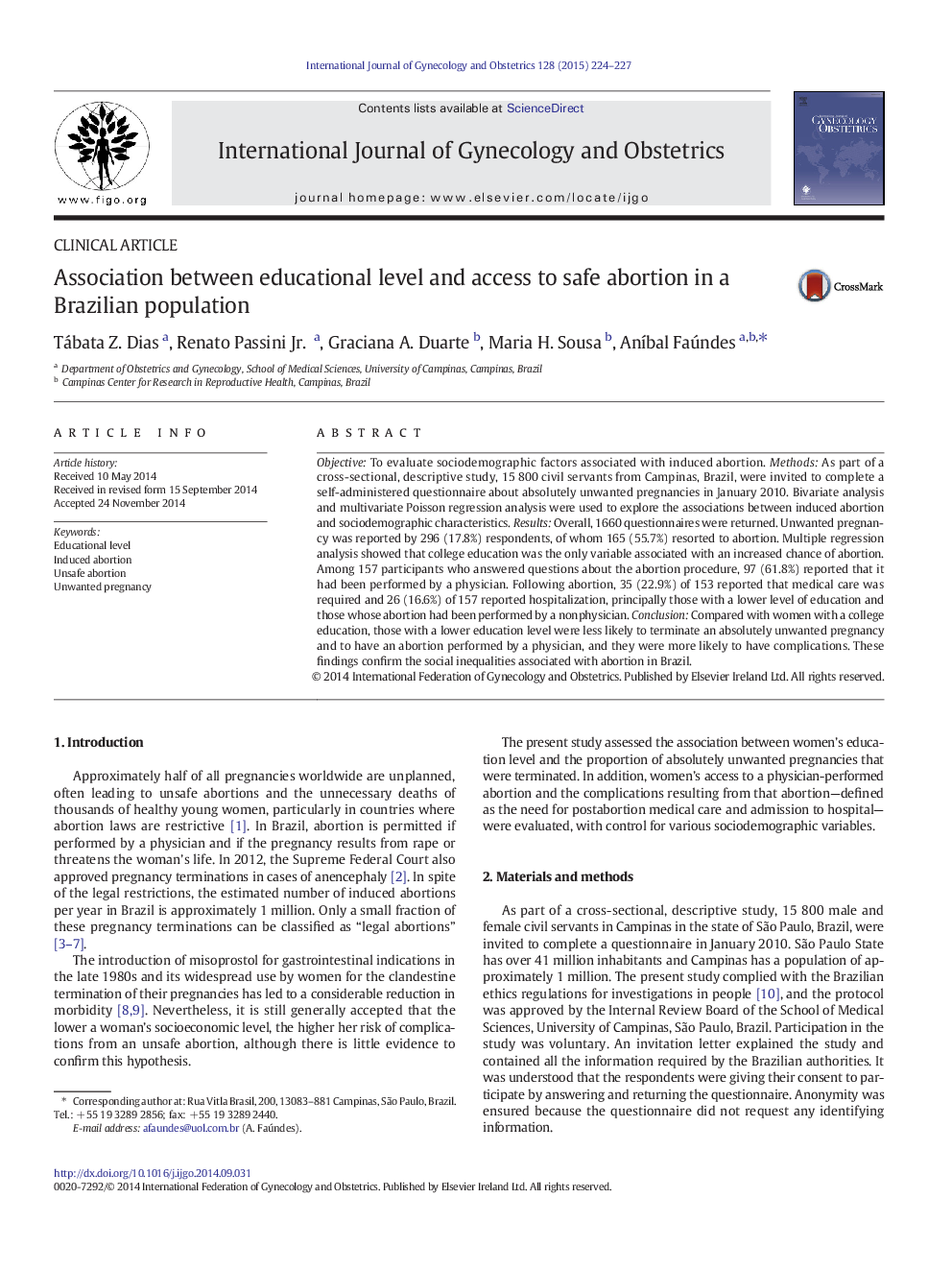| Article ID | Journal | Published Year | Pages | File Type |
|---|---|---|---|---|
| 3950780 | International Journal of Gynecology & Obstetrics | 2015 | 4 Pages |
ObjectiveTo evaluate sociodemographic factors associated with induced abortion.MethodsAs part of a cross-sectional, descriptive study, 15 800 civil servants from Campinas, Brazil, were invited to complete a self-administered questionnaire about absolutely unwanted pregnancies in January 2010. Bivariate analysis and multivariate Poisson regression analysis were used to explore the associations between induced abortion and sociodemographic characteristics.ResultsOverall, 1660 questionnaires were returned. Unwanted pregnancy was reported by 296 (17.8%) respondents, of whom 165 (55.7%) resorted to abortion. Multiple regression analysis showed that college education was the only variable associated with an increased chance of abortion. Among 157 participants who answered questions about the abortion procedure, 97 (61.8%) reported that it had been performed by a physician. Following abortion, 35 (22.9%) of 153 reported that medical care was required and 26 (16.6%) of 157 reported hospitalization, principally those with a lower level of education and those whose abortion had been performed by a nonphysician.ConclusionCompared with women with a college education, those with a lower education level were less likely to terminate an absolutely unwanted pregnancy and to have an abortion performed by a physician, and they were more likely to have complications. These findings confirm the social inequalities associated with abortion in Brazil.
